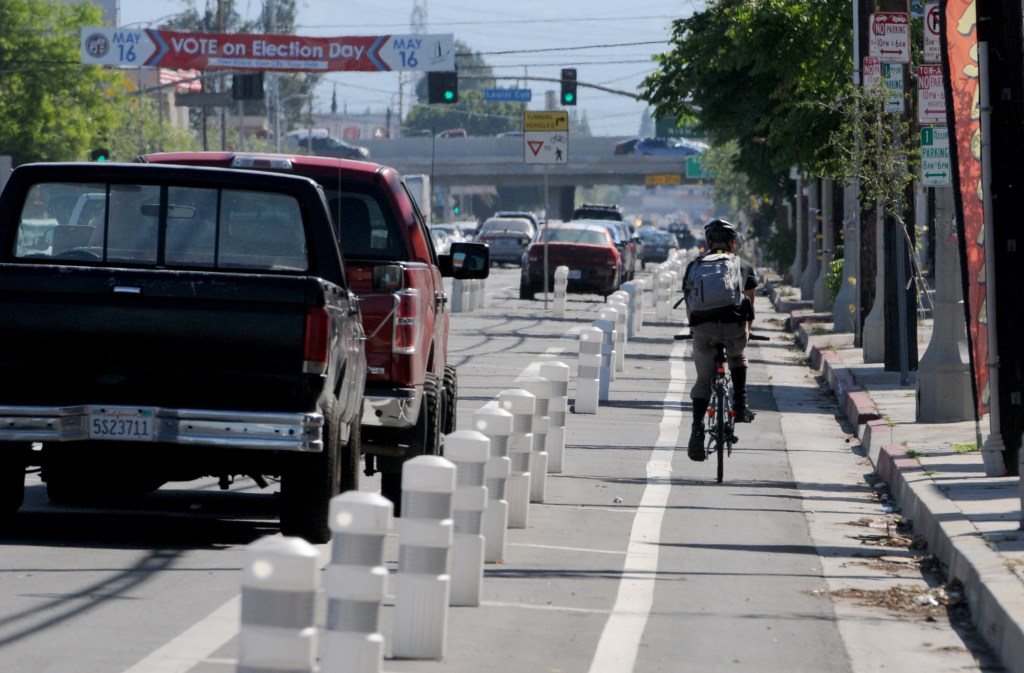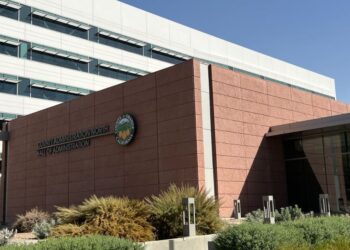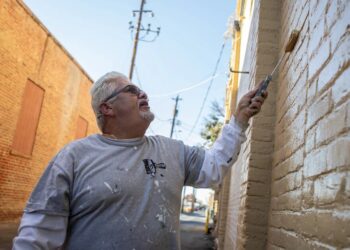Measure HLA on the March 5 ballot in Los Angeles would mandate construction of a bicycle and transit network on the streets of neighborhoods citywide in hopes that road diets on hundreds of miles of streets — meant to slow down cars and discourage driving — will make it safer for pedestrians and bicyclists.
The ballot measure known as Healthy Streets LA, or Measure HLA, is backed by leading bicycle and transit groups and would mandate that in neighborhoods where the city plans to repair more than 660 feet of their local street, a road diet or other changes would be applied.
“This is about safety, but it’s also about government transparency and efficiency,” said Michael Schneider the founder of the bicycling and pedestrian advocacy group Streets for All, and the author of the measure. “All HLA would do is to require the city to implement its plan anytime they repay the street. That’s simply a cheaper way to do these improvements.”
But critics and opponents say there’s nothing simple about HLA.
Councilmember Traci Park said she is concerned about the cost of the mandates, when the city is “looking at close to a half a billion dollars deficit.”
Measure HLA, she said in an interview, “will become a financial obligation that will necessarily have to come at the expense of other top priorities — like addressing homelessness, public safety, affordable housing and crumbling infrastructure.”
If approved, HLA would cost the city an estimated $2.5 billion over a decade or $250 million a year, according to a report from L.A. City Administrative Officer Matthew Szabo. The measure would impact the city’s repaving schedule, costing Los Angeles from $73 million to $139 million for every year of delay, according to Szabo’s report.
“This ordinance may increase litigation costs against the city and does not identify a new funding source. Therefore, diversion of existing funds from other city services may be required,” Szabo found.
In…
Read the full article here







